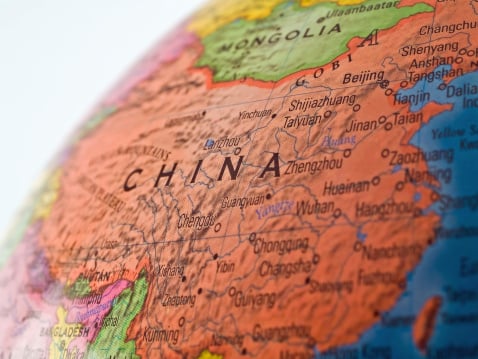If China will build its economy in a way that mirrors the paths taken by most of the nations in the developed world, it can grow at a rate of more than 8% per year over the course of the next decade, according to a new Organization for Economic Cooperation and Development (OECD) report. Of course, that it not true. It is China’s rebellion against old world economic practices that has helped it to become the world’s second largest economy by gross domestic product. The OECD believes that the People’s Republic must adopt a set of standards that actually would undercut its economic progress. Source: Thinkstock
Source: Thinkstock
The organization unveiled its analysis and forecasts:
The new Survey, presented in Beijing by OECD Secretary-General Angel Gurría at a press conference with Mr. Yang Weimin, Vice Minister of the Office of the Central Leading Group on Financial and Economic Affairs of the Chinese Communist Party, forecasts that GDP will grow by 8.5% this year and 8.9% in 2014.
Among the most remarkable suggestions by the OECD to China were these:
Maintain prudent macroeconomic management. Monetary policy can remain relatively accommodative in the near term, but it should be forward-looking and guard against inflation risks. China should deal with the off-budget liabilities of local government financing platforms and substantially raise the annual quotas for new building land, to reduce pressure on property prices.
If anything, the property price bubble has increased in terms of risks, and China’s efforts to curtail speculation and the availability of capital have barely changed that. In a recent report, Yao Wei, chief economist at Societe Generale CIB wrote:
The actual impact of the new policy can be very severe or not severe at all, depending on implementation. But the wording is unexpectedly harsh. … In three months time, the impact may not be big at all. But it has stirred very high negative expectations.
His may not be the consensus view, but it is hardly in the minority. China’s unstable real estate market could still contribute to its economic undoing.
Another OECD suggestion, which is unlikely to be implemented in any meaningful way, is about more environmental restrictions:
Move toward greener growth. Further improvement is needed in energy efficiency and reducing carbon dioxide emissions per unit of GDP, with carbon taxation preferable to emissions trading. Energy conservation should be encouraged, through higher excise duties on gasoline and deregulated prices. Water prices should be raised for end-users, and levies and pollution taxes increased. Standards for motor vehicle emissions and fuel quality should be further tightened.
The central government may have made a show of cutting pollution, but the industrial expansion of China cannot proceed at the current pace if it is captive to restrictive laws about air and water pollution. Like the United States during the decades of the industrial revolution, lakes, rivers and clear air are necessary victims of an economy fueled by factories.
China’s expansions, and the possible sharp end to that expansion, will not be based on any of the OECD’s suggested reforms.
Take This Retirement Quiz To Get Matched With An Advisor Now (Sponsored)
Are you ready for retirement? Planning for retirement can be overwhelming, that’s why it could be a good idea to speak to a fiduciary financial advisor about your goals today.
Start by taking this retirement quiz right here from SmartAsset that will match you with up to 3 financial advisors that serve your area and beyond in 5 minutes. Smart Asset is now matching over 50,000 people a month.
Click here now to get started.
Thank you for reading! Have some feedback for us?
Contact the 24/7 Wall St. editorial team.



